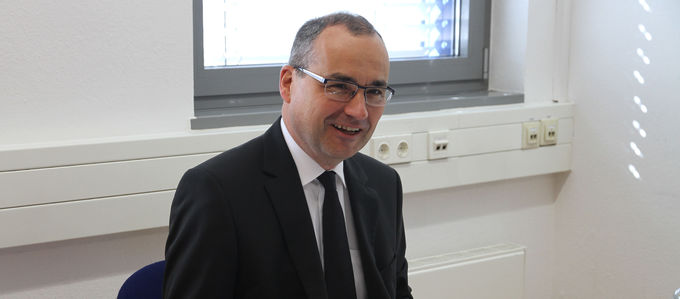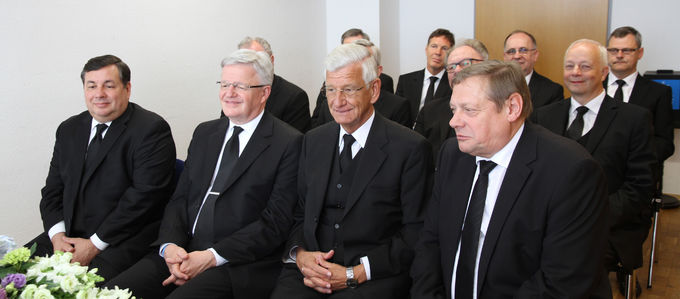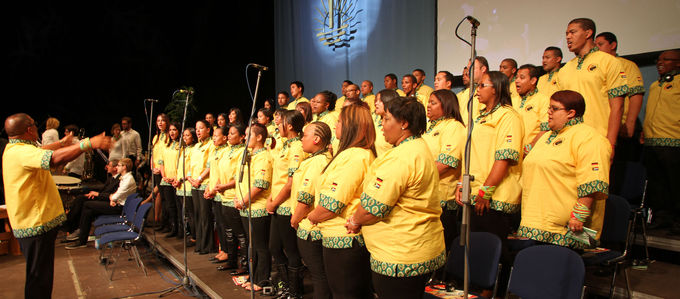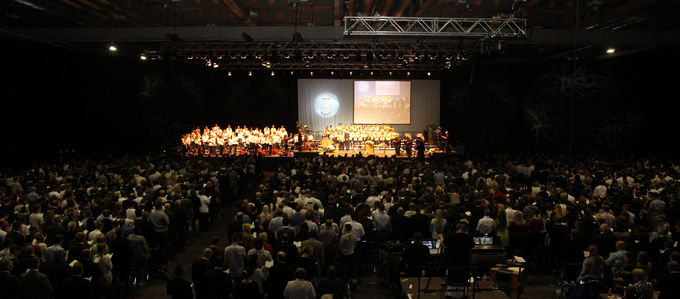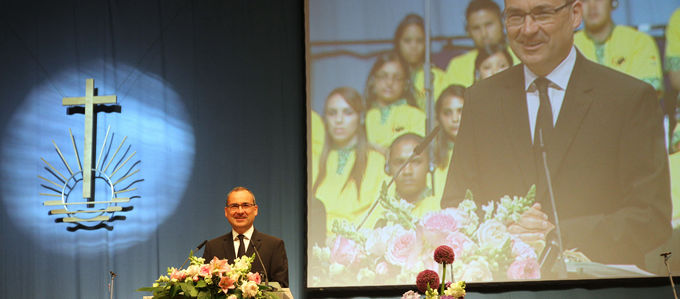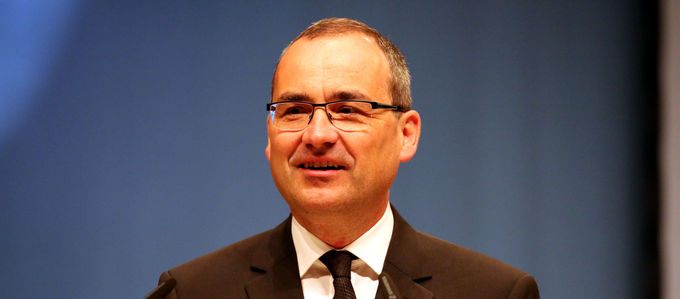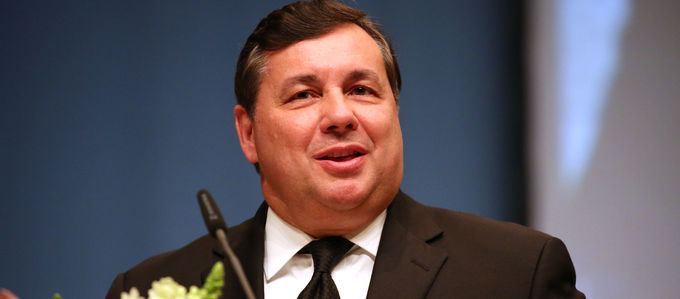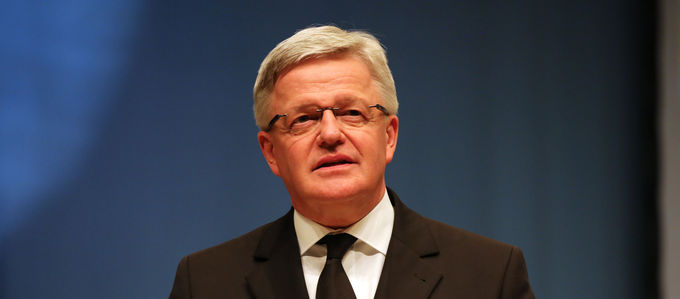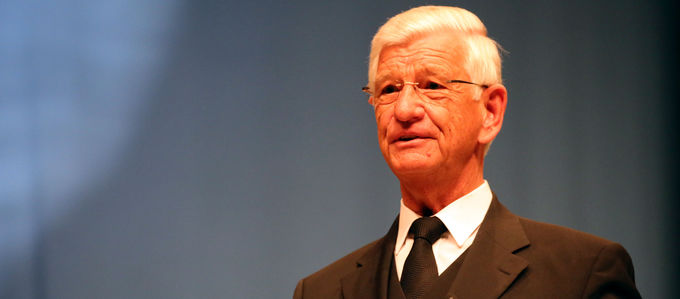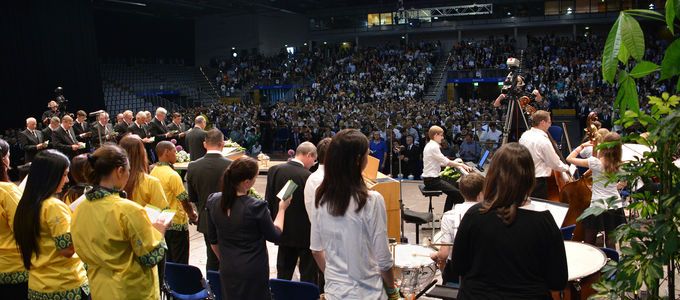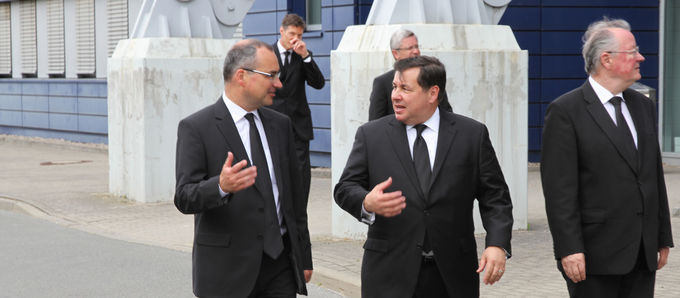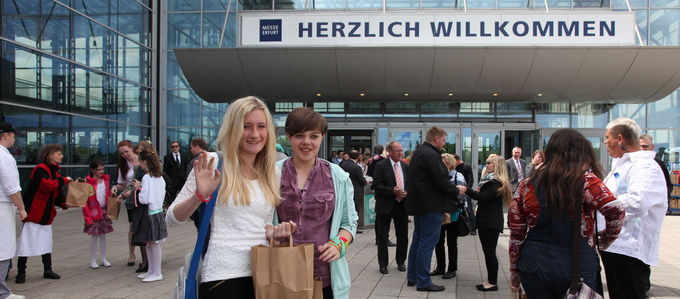Sharing what we experience
At times there is an enormous discrepancy between what is preached from the altar and what we experience. How do we deal with this? Following are some answers the Chief Apostle provided in a recent divine service. He also made it clear why it is so important to do what is right—and not only for ourselves.
Nearly 3,300 visitors attended the divine service in Erfurt in Germany on 17 May 2015, marking the highlight of the Day of the Youth in Central Germany. The Chief Apostle based the service on Acts 22: 14–15: “Then he said, ‘The God of our fathers has chosen you that you should know His will, and see the Just One, and hear the voice of His mouth. For you will be His witness to all men of what you have seen and heard.”
No one deserves grace
Using Apostle Paul as an example, Chief Apostle Jean-Luc Schneider made clear, “God has chosen you. This election is an expression of grace. We do not deserve it.” We are not, he continued, Christians by chance. “This is something we became because God has deliberately and specifically elected us. You are not here because your father and your mother belong to this Church. It is not because you were born in Germany or in Poland that you happen to be a Christian. You, personally, have been chosen by God. He has chosen you specifically because you are you!”
“God has already decided for us,” the Chief Apostle then said, “but we are free to do as we please. We are free to accept this election or not. We can choose to secure it—or not. But in order to be able to make this decision we need to know what this is all about,” he said. “We have been chosen to do the will of God. He has chosen us in order to grant us salvation. He has specifically chosen us so that we can grow into the image of Christ.”
Way, goal, training
It is also the will of God, the Chief Apostle said, that He has paved a way that leads to this goal. “It is the way of faith, rebirth, Holy Communion, and following. This is not something we have invented. The Lord Himself defined it,” the Chief Apostle explained. “There is a third aspect to His will that we need to know about. What He gives to me He also wants to give to others. Every Christian is called upon to bring the gospel to others. Every Christian has been called upon to help with God’s plan of salvation. And we have a future: in the kingdom of peace we are to bring the gospel to all human beings who have ever lived.”
“In order to arrive at our future vocation and be able to do this work we need training. We must learn to see and hear the Lord. People have all sorts of ideas about all the things the God of love should do. But the more we learn from the Holy Spirit, the more we recognize God’s love. We see God’s love in the salvific activity of the Lord Jesus: in His sacrifice, His resurrection, and His promise. This is the true expression of His love.” And if we then look at our neighbour—who is perhaps hunched over, or odd, or strange—what do we see? We see the Lord at work!
Be a witness!
“Let us also learn to hear the Lord, to hear His voice,” the Chief Apostle said with reference to the Bible text. “God does not always come down from heaven to tell us what we should do. Sometimes—even today—He uses someone else as a vessel. That vessel may well be our father or our mother, or a brother or sister in faith, or a minister. And once in a while He even talks directly into our heart.”
“Once we have completed our training, we are to be witnesses ‘to all men’,” the Chief Apostle said. “Witnesses give an account of what they have seen. It is not our task to give a theological discourse or to convince others. Our task is to simply recount what we ourselves have experienced.”
Wrestle for experiences
Before one can be a true witness of Christ, one must first have experienced one’s faith in Him. It happens that “we sometimes notice a discrepancy between theory and practice. There is at times an enormous difference between what is preached from the altar and what we experience,” the Chief Apostle stated. There is a great danger that we might begin to doubt and question everything. “That is the moment,” the Chief Apostle said, “when we must secure our election and say, ‘No, I want to experience this! It is not enough for me to hear them say that it is so. I want to experience it.’ We must wrestle and fight for that.”
Then we must show the Lord that we want to meet Him, that we long for an encounter with Him. “And then we have to pray and pray again. And sometimes—it happens to me too—we have to plead and beg, ‘Please, please, I really want to experience that.’” In order to have experiences of faith we need to believe and also practise what we believe. “If we do that we will experience God, and then we can be true witnesses of God and be a source of blessing for our neighbour.”
Article info
Author:
Date:
Keywords:
Andreas Rother
13.06.2015
Germany,
youth service,
Divine service


